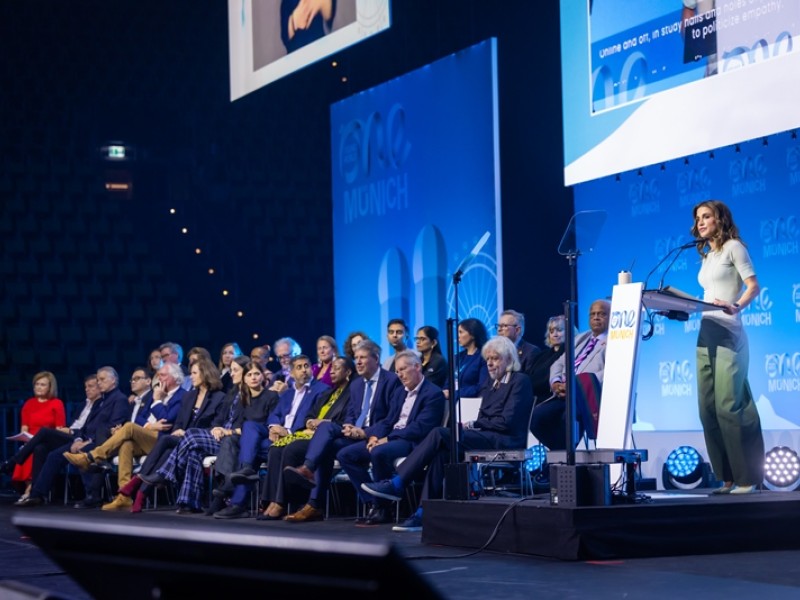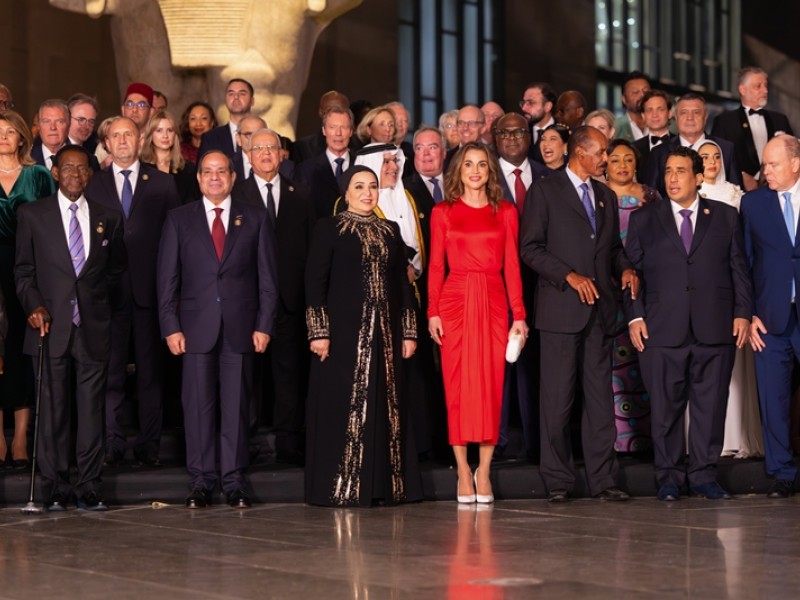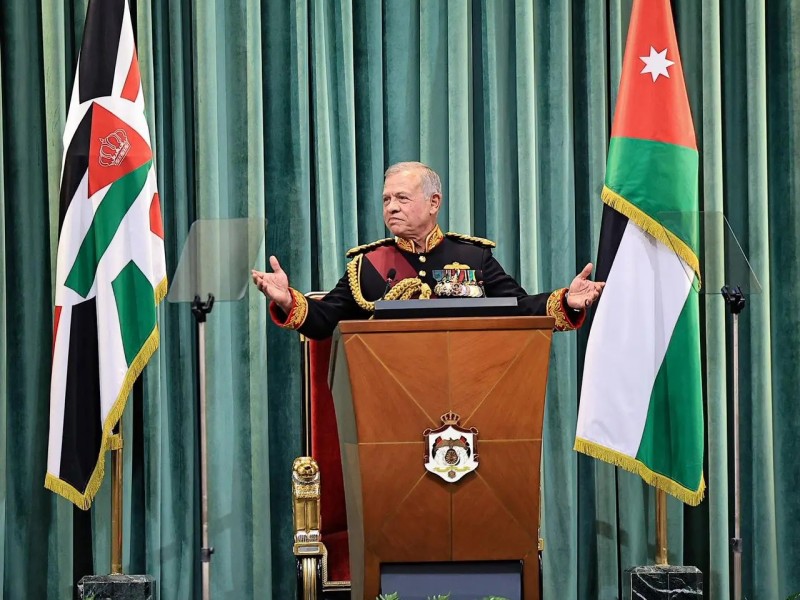Queen Rania Visits Health Center in Morocco

(Office of Her Majesty, Press Department - Fez) Concluding a working trip to Morocco, Her Majesty Queen Rania Al Abdullah visited the Dukarat Health Center in Fez, with Lalla Meryam, to highlight Morocco's efforts in promoting child health and access to immunization.
Queen Rania, who earlier this year was named UNICEF's first Eminent Advocate for Children, commended the government-run clinic's mission in providing free health care to residents of the area. "You are helping to eliminate the tragic loss of life," said the Queen.
The center, which has six doctors and two nurses, caters to over 120 patients per day. On an average day, the center vaccinates between 15 to 20 children and treats an additional 15 children. Queen Rania and Lalla Meryam joined the center's staff in administering polio vaccines to two 10-month-old babies.
The government of Morocco is completely self-sufficient in purchasing vaccines, which they procure through UNICEF. At the national level, there is 90 percent vaccination coverage, although in rural areas this is less so.
To that end, UNICEF will begin a national campaign to distribute vaccinations against measles and rubella, in October, to outlying areas with the aim of increasing the vaccination rate to 90 percent there also. The government of Morocco and UNICEF have each pledged $3 million for this campaign.
While touring the facility, Queen Rania and Lalla Meryam also joined a group of new and expectant mothers receiving antenatal and postnatal health advice. Morocco has the infrastructure in place to offer medical services to expectant mothers, but is raising awareness of the need for antenatal checks and post-natal follow-ups.
Morocco has achieved notable success in reducing the under 5-mortality rate – from 102 per 1,000 in 1987 to 47 per 1,000 in 2004. Maternal mortality in Morocco currently stands at 227 per 100,000 live births. The government is hoping to reduce this number to 83 per 100,000 – the target set by the Millennium Development Goals.
Under the supervision of the Moroccan Ministry of Health, the center, which is in a low-income neighborhood, provides free immunization and distribution of Vitamin A, treatment for patients with diabetes, and antenatal as well as postnatal support for expectant mothers and family planning services.
Friday, Queen Rania visited the King Mohammad V Foundation for Solidarity to learn more about the educational programs created by the government of Morocco to integrate young girls, the most marginalized sector of society, into educational institutions.
Zuleikha Nasri, Counselor on Social Affairs for His Majesty King Mohammed VI, accompanied Her Majesty on the tour where they visited two of the foundation's centers: Dar il Fatat and Dar il Taliba.
The Dar il Taliba center serves as boarding school bringing together girls from remote Moroccan villages as well as regional cities. The center provides a unique opportunity for the college-age girls from rural areas, who would otherwise be unable to pursue their studies due to the physical distance of their homes from the nearest college.
Illustrating their different backgrounds, most of the students donned the traditional costumes specific to their regions. "We do miss our family and friends back home," one of the students explained, "but it's worth the educational experience we're receiving, and we've formed new bonds here – this is our family now.
Queen Rania interacted with the enthusiastic students to hear some of their first-hand experiences. One student, from Yemen, explained to the Queen how she came to study in Morocco.
"I applied for a number of scholarships to pursue my Master's Degree, and the foundation offered me the best, and most inclusive, opportunity," she said. The girl, who hopes to continue her studies in social sciences and receive a Ph.D, said that she aspires one day to join Yemen's parliament "and hopefully welcome you there some day," she told the Queen.
The Foundation, which has provided access to education to more than 250,000 students, is in line with the Royal initiative of Morocco to deal with poverty pockets and inequity throughout the country. Morocco’s education budget comes first after defense of national territory.
Queen Rania noted her delight in seeing the fruits of such pioneering initiatives. "For women and girls, education is not just a chance to learn how to read and write, but a shield that may make the crucial difference between life and death," she said.
As Her Majesty toured the facility, one of the students showed off the center's newsletter that the girls write, edit and distribute. "It's so great to see that the center encourages students to think creatively, and take initiative," said the Queen.
Dar il Fatat, the other center that is part of the foundation, is a home for underprivileged girls in middle school and secondary school who are beneficiaries of scholarships funded by a group of Moroccan migrants who have chosen to fund girls’ education in their country.
The Foundation, which was established in 1999, instills a culture of solidarity in the face of poverty and marginalization. The Foundation has a special focus on schooling and training, and built 500 social centers for children, disabled people, women, young girls and the elderly. In addition, it set up four hospitals and eight health centers, equipped 43 regional hospitals, achieved 60 sustainable development programs and contributed to around 60 medical assistance programs in rural and suburban areas. The Foundation also carries out projects in several fields, including establishing cultural centers and centers for youth, rural girls, and abandoned children.
The centers, which are managed by "Maroc 2020," give training to the youth on new information technology, and raise their awareness on the UN Millennium Development Goals.
Endorsing the work of the two centers, the Queen noted her joy in seeing the educational opportunities created for girls. On many occasions, Queen Rania has said, "If you keep girls in school you can change the course of a nation."
Featured
Queen Rania's official website
This website does not support old browsers. To view this website, Please upgrade your browser to IE 9 or greater
Your browser is out of date. It has known security flaws and may not display all features of this and other websites. Learn how to update your browser



